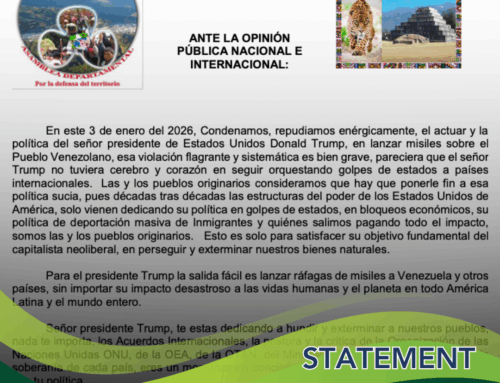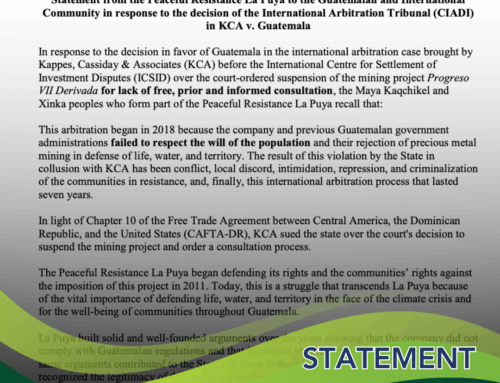On April 25, 2011, Guatemala’s Constitutional Court resolved to grant a provisional injunction against the President of the Republic, Álvaro Colom Caballeros, thereby temporarily suspending the central government’s attempt to regulate community referenda in the country. The injunction was filed on March 23 by the legal representation of various municipalities that have carried out referenda in the Guatemalan highlands, articulated in the Consejo de Pueblos de Occidente. The resolution, in Spanish, can be found on GoogleDocs here.
Textually, the resolution emitted states that “In light of the fact that, in the judgment of this Court, the circumstances make it advisable, the provisional injunction is granted; consequentially, the process initiated by the President of the Republic–the impugned authority–which has as its object the passage into law of the regulatory project known as the ‘Regulation for the process of consultation of Convention 169 of the International Labour Organization (ILO) on Indigenous and Tribal Peoples in independent countries,’ as well as the disposition by which the Minister of Work and Social Welfare set a period of thirty working days for the reception of opinions regarding the mentioned regulation, which began as of the twenty-third of February, two thousand ten
[sic], is suspended.” It should be noted that the date on which the Ministry of Work and Social Welfare opened its dispatch to the reception of opinions over the proposed regulation was February 23, 2011, and not 2010 as stated in the CC’s resolution.
While the CC resolved in favor of the injunction, it resolved against a “request for expansion” by which individuals representing 27 municipalities that have carried out community referenda would have entered the injunction process as “interested third parties.”
In a blog post, the Consejo de Pueblos de Occidente “call[s] on all peoples, churches, and sectors, as well as national and international organizations, to remain watchful for the favorable decision of the Constitutional Court.”







Leave A Comment